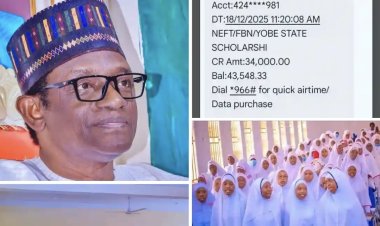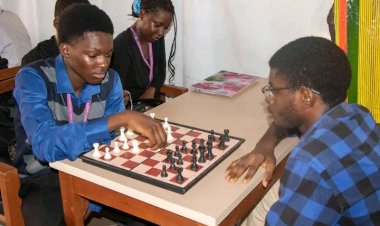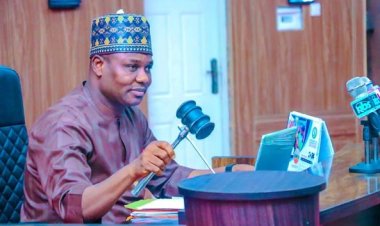Frustration Arises as Stakeholders worry over Lecturers’ JAPA Syndrome
Many lecturers in the Nigerian universities have expressed worry over the shortage of manpower in universities across the country, saying that the situation has posed a serious challenge to the education system.

Many lecturers in the Nigerian universities have expressed worry over the shortage of manpower in universities across the country, saying that the situation has posed a serious challenge to the education system, also urging the government to allow VCs free hand to recruit and fill existing vacancies created by retirement, death and going abroad in search of greener pastures.
A survey in the South-East have revealed that many lecturers were overworked as they now handled more courses because of a short supply of academic staff.
A dean at the Faculty of Pharmaceutical Science, University of Nigeria Nsukka (UNN), Ikechukwu Onyishi, said a short supply of academic staff has resulted in lecturers handling more courses in order to close the vacuum.
Read More: Professor at UNILAG Highlights 'Japa' Brain Drain Crisis in Nigerian Tertiary Institutions
Mr Onyishi said in Nsukka that the shortfall resulted from lecturers who have retired, some who died on active duty, while others travelled abroad in search of greener pastures without being replaced.
He said this had put pressure on a few remaining academic staff as they now handle more courses. The professor explained that the problem was not peculiar to UNN but to public universities nationwide.
He alleged that the federal government’s introduction of the Integrated Payroll Personnel Information System (IPPIS) had made it difficult for vice-chancellors to recruit new academic staff to fill the vacuum.
Mr Onyishi added, “Government should also restructure IPPIS in such a way to enable VCs to upload names of new staff recruited in their universities into IPPIS.”
Christian Opata, the chairman of the Academic Staff Union of Universities (ASUU) in UNN, said until the government shows seriousness on issues concerning education by implementing good policies, more academic staff will continue to rush abroad for greener pastures.
A senior lecturer at the Department of History and International Studies, Mr Opata, disclosed that not only lecturers were resigning and going abroad for greener pastures, but many on government scholarships abroad to do their Masters or PhDs have refused to come back to Nigeria.
He also revealed that the number of retired academic staff and those who died have contributed to the short supply, but the number of those who resigned, go abroad in search of greener pastures and those on government scholarship who, after doing their master’s or PhDs but refused to come back are higher in number.
The ASUU boss said the shortage had been a big burden to lecturers in public universities as they now handled more courses, stressing that the government had used IPPIS to make it difficult for vice-chancellors to recruit more academic staff.
Recommended: Blame 'Japa Syndrome' on Bad Governance - Former UI VC
According to Mr Opata, this short supply of lecturers in Nigerian universities has affected teaching, learning, and the quality of graduates from various institutions.
In Abia, Maduike Ezeibe of the College of Veterinary Medicine, Michael Okpara University of Agriculture, Umudike, said the government and private individuals’ establishment of new universities in the country was taking a huge toll on the number of qualified lecturers.
Mr Ezeibe, a professor of Clinical Virology and former dean of the College, said many lecturers, especially those in professional courses, had abandoned teaching and gone in search of greener pastures outside the university system.

 Nnenna Orji
Nnenna Orji 



